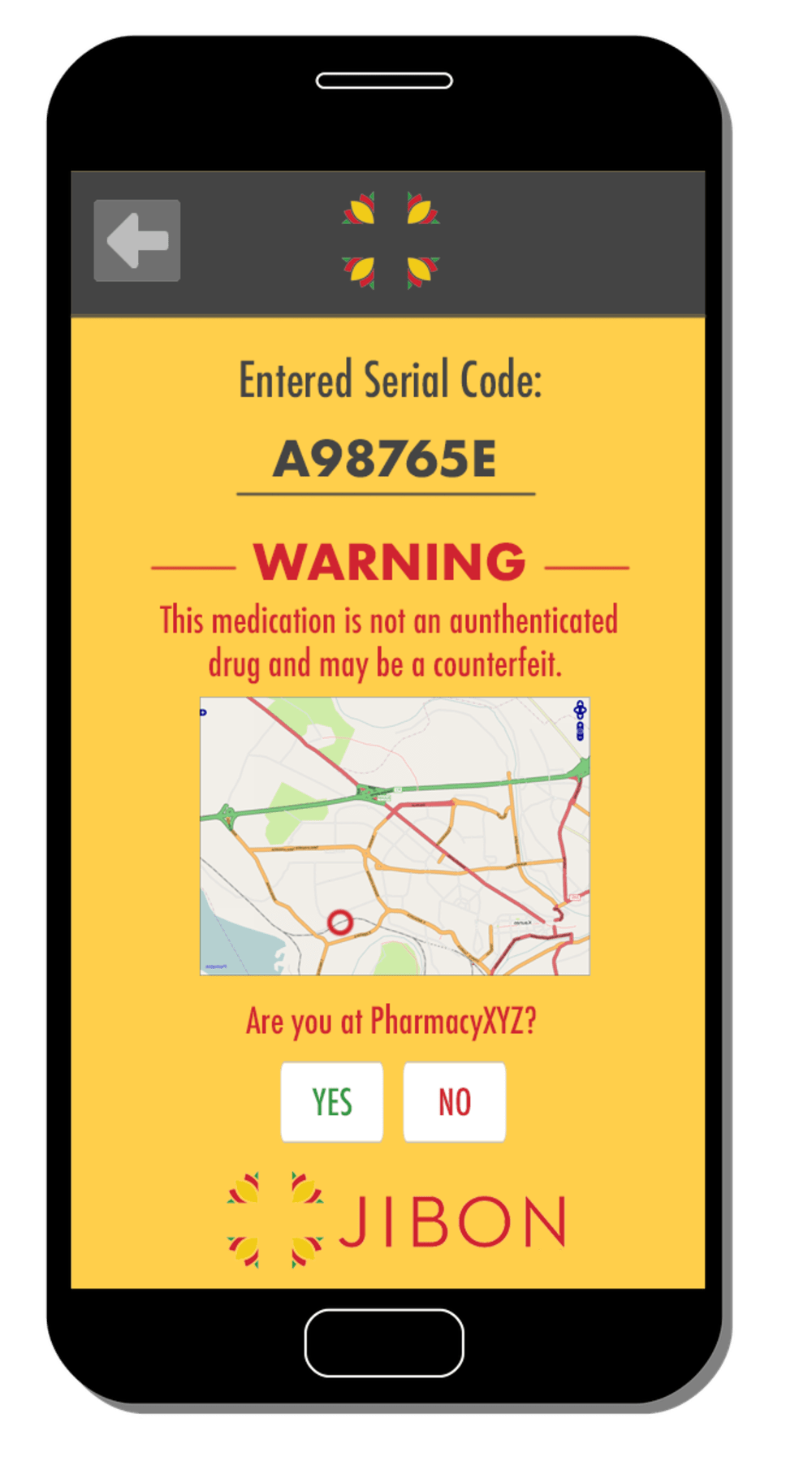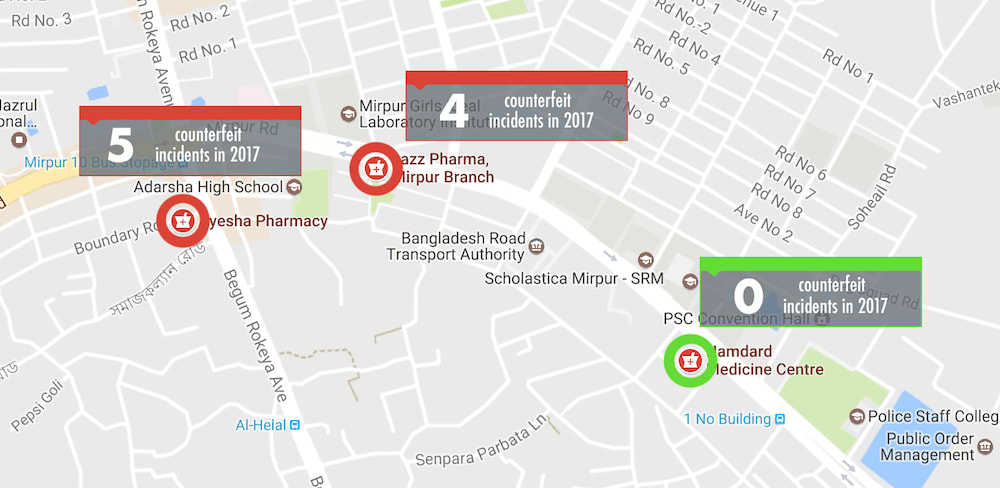Innovation:
According to the WHO, developing countries in Africa, Latin America, and Asia have a counterfeit pharmaceutical market penetration of over 30%. Distribution of counterfeit medicine poses a danger to the strength and stability of pharmaceutical delivery systems in low and middle income countries (LMICs) such as Bangladesh. Current approaches to defend supply chains are often led by redesigning government enforcement strategies. Jibon Health Technologies proposes to take a bottom up approach by using point-of-sale verification, which democratizes the process, empowering consumers to take drug safety into their own hands. Jibon Health has developed CDrug, a secure service for customers to check the validity and expiration of their medications via Short Message Service (SMS) or a web application. Customers can send their drug’s serial number, price, and the pharmacy's identifier code to the CDrug service. Based on the serial number’s history, an automated response will indicate the drug’s validity.
We expect multiple avenues of impact. The ability to reject counterfeit drugs at point-of-sale will enable the consumer to feel more confident that their hard earned money is being used on verified, quality medication. Thus, we expect that the loss of quality-adjusted life years to placebo or toxic drugs will decrease. Additionally, by rejecting counterfeit drugs, consumer influence is likely to reduce revenue for counterfeit manufacturers, making the counterfeit industry less lucrative. We will also be storing the location, time, and drug identity of user inquiries in order to share real-time geographic and temporal counterfeit distribution trends with pharmaceutical companies and the government.
Manufacturability:
Mobile coverage in Bangladesh is over 90% of the land and 95% of the population, with over 60 million unique subscribers. Thus, mobile technologies such as CDrug fit into current telecom infrastructure and social habits in Bangladesh. Mobile use transcends gender and socioeconomic barriers, with users including farmers and women entrepreneurs, making mobile technology a promising platform to target mass participation. As a mobile technology, CDrug also has the potential to be extremely low cost per impact. The major costs for CDrug are limited to maintaining a server, updating fieldwork, and data management.
Marketability:
Due to established partnerships with the Bangladesh Association of Pharmaceutical Industries (BAPI) and the Ministry of Health, our initial target market will be pharmaceutical companies and medicine buyers in Bangladesh. BAPI oversees the integrity of the USD $373M local pharmaceutical industry and represents 96% of pharmaceutical manufacturers in the country. They have pledged full support to assist in the development and deployment of CDrug. According to USAID, pharmaceutical companies in Bangladesh have lost an estimated USD 150M in annual revenue due to sale of counterfeit drugs. Thus, our primary revenue source will be pharmaceutical companies who can protect their supply chain by subscribing to the CDrug service. We will conduct market validation by initially rolling out the service in a limited number of drugs. Following successful deployment of CDrug across Bangladesh, we aim expand to some of the over 85 countries which import Bangladeshi pharmaceuticals.
Like this entry?
-
About the Entrant
- Name:Sejal Khan
- Type of entry:teamTeam members:Mikail Kamal
Marissa Dreyer
Mahtab Alam
Mohammad Zaryab
Sejal Khan - Software used for this entry:N/A
- Patent status:none





